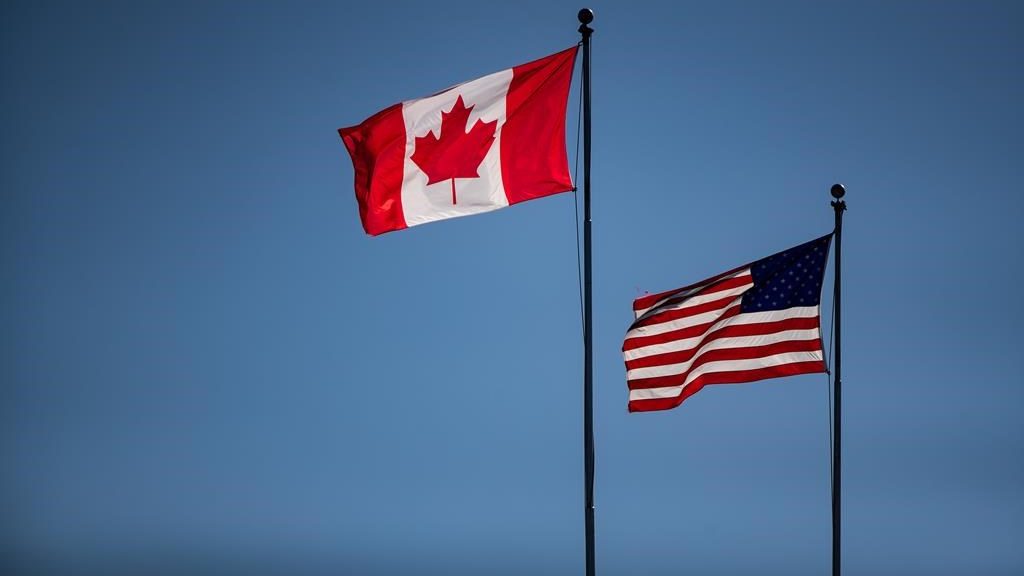U.S.-Canada Trade Tensions Escalate Over Fentanyl Concerns
March 3, 2025 – The United States has announced a sharp increase in tariffs on Canadian goods, citing concerns over illegal fentanyl trafficking as the primary reason for the move. This unexpected escalation in trade restrictions has sent shockwaves through financial markets and diplomatic circles, sparking tensions between the two North American allies.

Background of the Dispute
The latest U.S. decision comes amid rising concerns in Washington over the illicit fentanyl trade, which has contributed to a growing opioid crisis in the United States. Officials allege that some fentanyl-related substances have been smuggled into the U.S. through Canada, despite stringent border controls and collaborative enforcement efforts. The White House stated that increased tariffs would serve as a measure to pressure Canada into strengthening its crackdown on illicit drug flows.
“The opioid epidemic continues to devastate American families, and we must take all necessary steps to address the sources of this crisis,” said U.S. Trade Representative Michael Edwards. “While Canada has been a strong partner, we need to see more action and accountability.”
Impact on Trade and Economy
The newly imposed tariffs target a wide range of Canadian exports, including lumber, aluminum, automotive parts, and agricultural products. The tariffs, which range from 10% to 25%, have already had immediate effects on trade relations, with Canadian officials expressing deep concern over the potential economic repercussions.
Stock markets reacted swiftly to the announcement, with the Toronto Stock Exchange (TSX) experiencing a sharp drop, particularly in industries directly affected by the tariffs. The U.S. stock market also saw declines, as businesses that rely on Canadian imports fear supply chain disruptions and increased costs.
Canada’s Response
In response to the U.S. action, Canadian Prime Minister Justin Trudeau condemned the tariffs as “unjustified and harmful” and vowed to take countermeasures if the restrictions are not lifted.
“Canada has always been a strong and responsible trade partner. This move by the United States is not based on facts but rather on domestic political considerations,” Trudeau stated in a press conference. “We will explore all available avenues, including seeking resolution through the World Trade Organization and implementing reciprocal measures.”
Canadian businesses have also voiced their concerns, warning that these tariffs could lead to job losses, reduced investment, and slower economic growth. The Canadian Chamber of Commerce called for urgent negotiations between the two governments to resolve the dispute before further damage is done.
International Reactions
The trade conflict has drawn reactions from international leaders and economic organizations. The European Union expressed concern over the rising tensions and urged both nations to seek a diplomatic solution to avoid a broader trade war. China and Mexico, both major trading partners of North America, have also weighed in, stressing the importance of stability in global trade relations.
The World Trade Organization (WTO) has not yet commented on the dispute, but experts suggest that Canada could file a formal complaint, arguing that the U.S. tariffs violate international trade agreements.
Political Implications in the U.S.
The move comes at a critical time in U.S. politics, with the 2025 presidential election campaign already underway. Analysts suggest that the tariffs may be a strategic move by the current administration to appeal to domestic voters who are concerned about the opioid crisis and economic security. However, opposition lawmakers have criticized the decision, arguing that it could harm American businesses and strain a historically strong alliance.
Senator Elizabeth Warren, a vocal critic of the tariffs, stated, “Trade wars do not solve the opioid crisis. Instead of punishing our closest ally, we should be working together on solutions that address the root causes of drug trafficking.”
What’s Next?
As tensions escalate, all eyes are on the upcoming diplomatic talks between U.S. and Canadian officials. Both countries have emphasized the importance of maintaining their strong economic partnership, but the path forward remains uncertain. If no resolution is reached soon, analysts warn that the dispute could have long-term effects on North American trade and economic stability.
For now, businesses and consumers on both sides of the border are bracing for the potential economic fallout of this rapidly evolving trade conflict.
What's Your Reaction?












/https://tf-cmsv2-smithsonianmag-media.s3.amazonaws.com/filer_public/54/66/546650fa-26a4-40fd-8d6d-5a7a04540f81/rosetta2.png)
:max_bytes(150000):strip_icc():focal(999x0:1001x2)/robert-prevost-050825-1-39395418ab494da5a3a700c9478e66c8.jpg)















































format(webp))
format(webp))


























